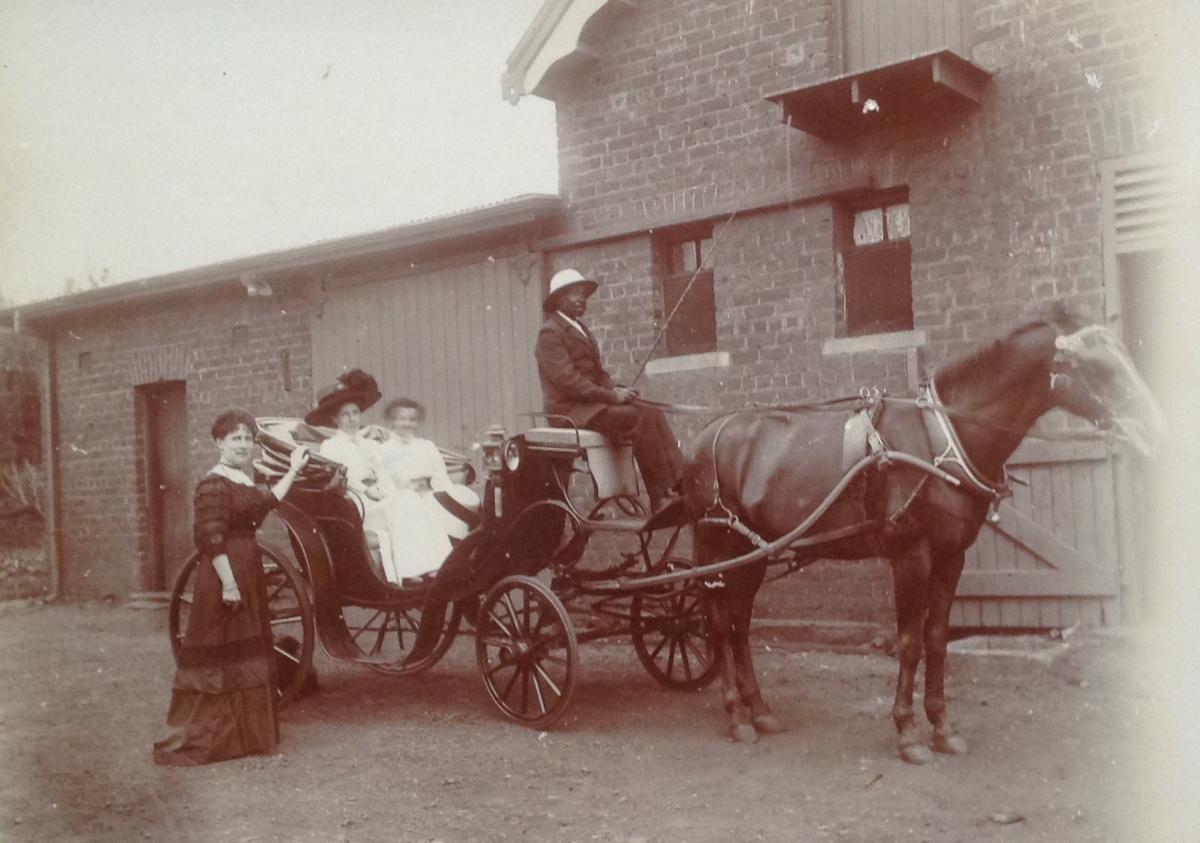
Disclaimer: Any views expressed by individuals and organisations are their own and do not in any way represent the views of The Heritage Portal. If you find any mistakes or historical inaccuracies, please contact the editor.
Within the cover page of a Victorian photo album recently acquired for the Hardijzer Photographic Research Collection (HPRC), a poem written in Dutch/Afrikaans was found. Given the era of the album, as well as the content of the poem, it is thought the poem was penned (typed) prior to 1910. I find the poem intriguing and simply have to share it. I retyped the poem with the original grammatical errors included as well as informally translated (click here to read).
The typewriter has been in use since around the mid-1880s. It is therefore assumed that the poem would have been typed by the author, Ompie (Uncle), himself.
The grammatical errors and some sentence structure in the original poem can be safely linked to Ompie’s lack of typing skills. The spelling of Ompie in itself is also incorrect. The correct spelling, Oompie, is a diminutive of Oom (Uncle).
The album sadly contained no provenance, so it is therefore not possible to determine who the album may have belonged to. It is assumed that Ompie is the uncle of the original owner of the Victorian Photo Album, a young female at the time. It is also assumed that her uncle wrote the poem because of his personal observation of changes taking place within the younger generation.
The poet applied a couplet style (where two successive lines rhyme), however, the translated version into English loses the intent of rhyme.
As much as things change, they remain the same. Analysing the poem reminds me of modern-day conversations where we reflect on the changing times as well as generational gaps. Most of us can probably relate to the poem somehow or another in that more than a century later, the underlying theme remained the same, only with a change in the underlying nuances.
With his reference on two occasions to English influences, he clearly took exception. This is clearly still in reference to resentment left over from the Anglo-Boer war era.
Other aspects that stand out are:
- People attend church only to show off their latest acquisitions;
- Religious priorities are dwindling;
- General levels of integrity are on the decline;
- The female’s role being in the kitchen and cooking being done outside the house;
- The youth are slackers;
- Changing priorities.
Old Ompie, in my view, had a rather cynical view of life at the time and was not sufficiently resilient in accepting the nuanced changes around him (not unusual for most of us – even today) and penned the poem to record his discontent. Once again, click here to read.
Main image: The poet makes reference to people arriving at church in an upgraded form of transport – not to come and listen to the sermon, but to come and show off their latest acquisition - the horse cart. This photograph presents a classical example of an upmarket horse cart that would have been in use by wealthier citizens at the time. Location and photographer unknown (circa 1910).
About the author: Carol is passionate about South African Photographica – anything and everything to do with the history of photography. He not only collects anything relating to photography, but also extensively conducts research in this field. He has published a variety of articles on this topic and assisted a publisher and fellow researchers in the field. Of particular interest to Carol are historical South African photographs. He is conducting research on South African based photographers from before 1910. Carol has one of the largest private photographic collections in South Africa.
Comments will load below. If for any reason none appear click here for some troubleshooting tips. If you would like to post a comment and need instructions click here.
